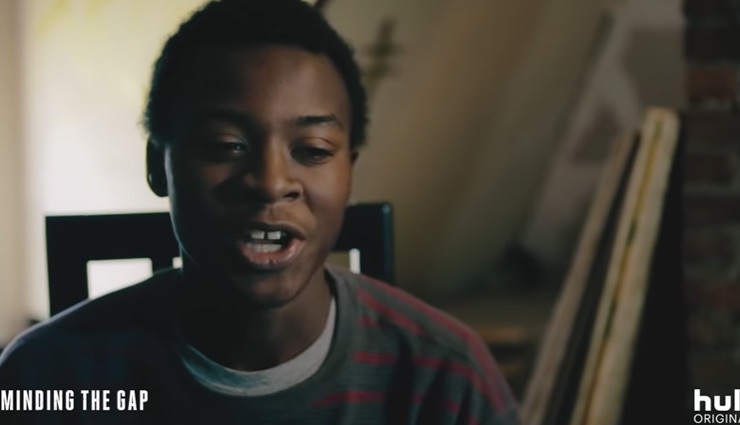- Home›
- Entertainment›
- Flashback 2018- Top 5 Documentaries That Were Released In 2018
Flashback 2018- Top 5 Documentaries That Were Released In 2018
By: Priyanka Maheshwari Sun, 23 Dec 2018 08:52:11

Especially in our current cultural and political climate, truth is often crazier, scarier and more uplifting than fiction – which is why it’s no surprise that 2018 was a banner year for non-fiction cinema. Whether investigating present and past tragedies and wrongs, or celebrating notable personalities and their stirring stories of trauma and perseverance, these diverse films capture reality in all its harrowing and euphoric intricacy. Utilizing formal techniques that range from the straightforward to the eccentric, they train a rigorous eye on the complex nature of life, unearthing and confronting bedrock truths in the process. As valuable as the blockbusters that dominate the multiplex, these are our picks for the best documentaries of the year.
* 24 Frames
Neither a fictional film nor, strictly speaking, a traditional documentary, late Iranian master Abbas Kiarostami’s 24 Frames is an experimental endeavor that plumbs the nature of non-fiction imagery—and, in doing so, proves a haunting meditation on mortality from a filmmaker who knew this would be his final work. Kiarostami’s unique effort features twenty-four still images, all of which (save for the first, Bruegel’s 1565 painting The Hunters in the Snow) he took himself, and which come to animated life through computer-generated means. There’s no straightforward drama to any of these scenes, each of which lasts approximately four-and-a-half-minutes. Yet there are patterns, which slowly emerge to suggest unifying themes of isolation, loneliness, and the inexorable forward march of time. That journey, of course, ultimately leads to the grave, and death hangs like a specter over these imaginative proceedings. Just as powerful, though, is the cine-affection that Kiarostami expresses throughout, culminating with an Andrew Lloyd Webber-scored celebration of the undying nature of love.
* Filmworker
Even geniuses need help, and fortunately for Stanley Kubrick, he had Leon Vitali, an accomplished artist in his own right whose work alongside the 2001: A Space Odyssey auteur—first as an actor in Barry Lyndon, then as his right-hand man for The Shining, Full Metal Jacket, and Eyes Wide Shut—is justly lionized by Tony Zierra’s documentary. Using a wealth of archival material as well as new interviews with the now-down-on-his-luck Vitali and Kubrick collaborators (Matthew Modine, Ryan O’Neal, R. Lee Ermey, Danny Lloyd), Zierra paints a vivid portrait of extreme commitment, as Vitali’s dedication to his illustrious partner’s vision damaged both his health and his relationship with his family. Filmworker is an illuminating dissection of an essential behind-the-scenes collaboration, and a case study of the identity-negating self-destructiveness of unwavering devotion. Moreover, it’s a nuanced depiction of the less-than-glamorous work that goes into classic art—and, in the end, a deserved tribute to the invaluable individual behind the legend.
* Bisbee ’17
Bisbee, Arizona is now a tiny enclave of artists and iconoclasts, but at the turn of the 20th century, it was best known for its wealth of copper—and its most notorious incident. Robert Greene’s audacious Bisbee ‘17 employs fiction and non-fiction modes to recount the calamitous Bisbee Deportation of July 12, 1917, in which a local sheriff and a 2,000-man posse rounded up striking German and Mexican miners, stuffed them into cattle cars, and drove them out to the New Mexico desert, where they were unceremoniously abandoned. Weaving together archival material, new interviews with relatives of those who stayed in Bisbee, and staged recreations that are sometimes enhanced by musical numbers, Greene crafts a multifaceted treatise on the nature of memory and the scars of intolerance. Its formal dissonance in tune with its story about a community fractured by its ugly past, it’s an ever-relevant history lesson about immigration, race, and power that comes across like a disturbing ghost story.
* Dead Souls
There’s no denying that Dead Souls’ eight-hour and sixteen-minute runtime makes it something of an arduous cinematic experience. Still, Wang Bing’s epic documentary is a vital work of remembrance, giving extended voice to some of the men who survived communist China’s re-education camps—in particular, those at Jiabiangou and Mingshui—from 1958 to 1961. Labeled as “rightists” (for reasons never explained to them), and then forced to toil on arid farms until they reached the brink of death from starvation and hunger (which killed most), these individuals recounts tales that—replete with anecdotes about cannibalism—are nothing short of bone-chilling. As with Claude Lanzmann’s Shoah, Bing’s film refuses to let historical atrocities simply fade away; in patient conversations with its now-elderly, largely male subjects, it shines a spotlight on Mao’s monstrous method of silencing Party (and regime) critics. Be it their traumatized monologues or a recent trek through Mingshui, where human bones still litter the land, Dead Souls illustrates how the past remains present.
* Minding the Gap
For three teenage boys in unemployment-wracked Rockford, Illinois, skateboarding is a means of fleeing adulthood and escaping volatile home lives. Bing Liu’s documentary about himself and his two friends, Zack and Keire, depicts their arduous maturation process in intimate (and autobiographical) terms, with Bing shooting his mates riding through the city, toiling at menial jobs, and dealing with highly combustible family circumstances—especially in the case of Zack, who’s about to have an infant son with his on-again, off-again girlfriend Nina. With deep empathy, the film investigates the myriad ways domestic abuse scars adolescents, with domineering father figures eventually fingered as the culprits for this trio’s—and community’s—pervasive problems. Part confessional home movie, part socio-economic investigation, Minding the Gap exposes the difficulties of growing up in an environment that only offers kids awful male role models. At the same time, it honors the liberating euphoria of setting one’s problems aside, however briefly, to hop on a skateboard and coast down parking garage ramps and empty streets.





